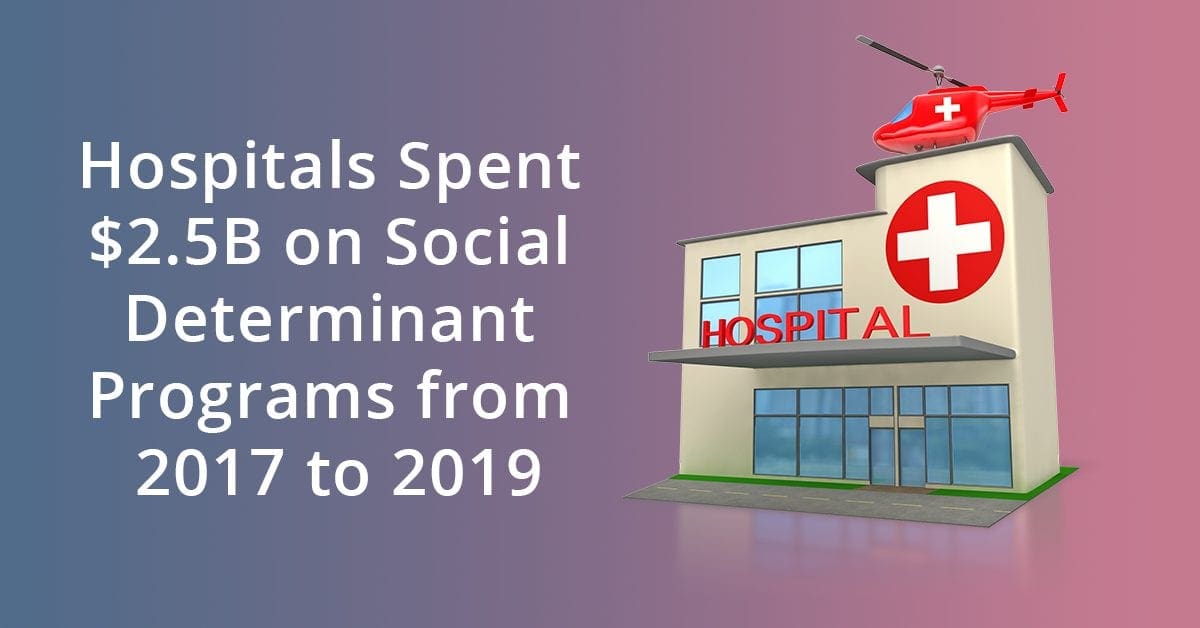Call us toll-free: 800-878-7828 — Monday - Friday — 8AM - 5PM EST

By Shannon Muchmore for Healthcare Dive
Dive Brief:
- U.S. health systems invested at least $2.5 billion in programs around social determinants of health from 2017 to 2019, according to a study published Monday in Health Affairs.
- Researchers found that over the time period studied, 57 health systems including more than 900 hospitals developed 78 unique programs involving social determinants.
- Spending was most focused on housing interventions ($1.6 billion) followed by employment ($1.1 billion), education ($476 million), food security ($294 million), social and community context ($253 million) and transportation ($32 million).
Dive Insight:
Social determinants of health have gotten a lot of attention in recent years as more research shows a person’s health can depend heavily on their location and circumstances.
Startups and other fast-growing companies like Uber and Lyft in transportation are attempting to capitalize on the movement through partnerships with established health systems. Last month, Lyft announced a non-emergency medical transportation deal with CommonSpirit (following on the heels of a similar arrangement with Sutter Health) and Uber Health said it planned to double its staff this year.
The Health Affairs researchers noted that the amount health systems are investing in social determinants programs is dwarfed by the $60 billion in overall annual community benefit spending, but categorize it nevertheless as a “substantial investment.”
The hesitancy to spend more on these interventions could stem from the lack of research pointing to tangible health improvements or return on investment. “In general, however, the evidence for health outcome improvements from interventions focused on social determinants is thin,” the authors wrote.
And other research has shown how providers don’t tend to incorporate social factors directly into their jobs. A January report from CMS found that in the first two years diagnostic codes for social determinants of health were available in Medicare fee-for-service claims, they were used for only 1.4% of the total beneficiary population.
And a JAMA study last year found that only a quarter of hospitals and 16% of physician practices screen patients for social needs that affect health outcomes.
The Health Affairs report showed that 41 of the 57 systems identified as investing in social determinant programs were secular nonprofit organizations, only two were public systems and none were for-profit. Those making investments tended to be larger, have more member hospitals and were more likely to include at least one major teaching hospital.
The state with the most programs was California, but a total of 30 states were represented. The three largest commitments were from Kaiser Permanente, Johns Hopkins Health System and MetroHealth in Cleveland.
The researchers used LexisNexis and Google searches to identify the programs and their investments based on news articles and press releases. The health systems were linked to the Agency for Healthcare Research and Quality compendium.
They used SDOH definitions laid out in the HHS program Health People 2020, which identifies economic stability, education, social and community context, health and healthcare (such as access to care and health literacy) and neighborhood and built environment as key areas.
